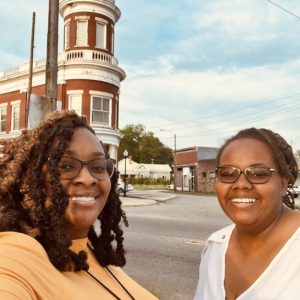As a Licensed Local Pastor in the United Methodist Church, I have been entrusted with preaching the Gospel, administering the sacraments, offering pastoral care, and leading the congregation in faithful discipleship. Unlike ordained elders, licensed pastors are typically rooted in one place—charged with bringing consistency, care, and leadership to a specific flock. It is an appointment, yes—but also a partnership with the Holy Spirit and the people.
This particular role is not just about fulfilling church functions. It’s about serving in context—honoring the rhythms, stories, and values of the people and the place I’ve been sent to.
Rooted in the Black Church Tradition
To pastor in the Black Church tradition is to stand on holy ground. It is to carry the legacy of those who sang spirituals in the fields, preached justice in the face of oppression, and built community when the world offered none.
The Black Methodist church has always been more than a worship space. It’s a lifeline, a safe haven, a place of protest and praise. In this tradition, worship is expressive, passionate, and deeply personal. Preaching isn’t just about interpretation—it’s about liberation. It’s not enough to “know the Word”; we must live it in ways that heal and uplift our people.
To be a Black pastor in a Black church is to understand the spiritual and social weight of the pulpit. You are a theologian, a community leader, a historian, and often a family member to many.
Honoring Tradition in a Changing World
A traditional church may prefer hymns over contemporary praise, printed bulletins over digital slides, and structured liturgy over spontaneous flow. And yet, within that structure is deep spiritual power. There’s beauty in saying the Apostles’ Creed together, in hearing the Lord’s Prayer echo through the sanctuary, in singing “Blessed Assurance” with three generations in harmony.
Being a pastor in this context requires wisdom. It means knowing when to honor the familiar, and when to gently introduce new possibilities. Change doesn’t have to be disruptive—it can be pastoral, prayerful, and rooted in love.
The Sacredness of Rural Ministry
Rural churches are often overlooked—but they are sacred ground. In places like Maxton, the church isn’t just a spiritual home; it’s a pillar of the community. In small towns, relationships are deep, traditions are treasured, and trust is everything.
Rural ministry means driving down dirt roads, visiting members who don’t use email, and preaching to folks who grew up in that very pew. It means understanding the economics, agriculture, and geography that shape people’s lives. It’s personal. It’s relational. It’s real.
It also means working with limited resources, but abundant faith. And I’ve learned that in rural churches, faith doesn’t come in sound systems or stage lights—it comes in casseroles, handwritten cards, and faithful saints who open the church every Sunday without fail.
A Sacred Assignment
To serve as a UMC licensed pastor in a Black, traditional, rural church is to accept a sacred assignment. It’s not glamorous. It’s not trending. But it is transformational.
It’s about presence. It’s about patience. It’s about pastoring with your whole heart.
As I step into this new chapter with St. George UMC, I do so with reverence and hope. May this journey be marked by mutual growth, deep connection, and Spirit-led transformation. And may we—together—continue the holy work of loving God and loving neighbor in a world that desperately needs both.
Rev. McKenzie McKenzie
Licensed Pastor, United Methodist Church
Senior Pastor, The Rev. McKenzie Network
Pastor, St. George UMC – Maxton, NC


